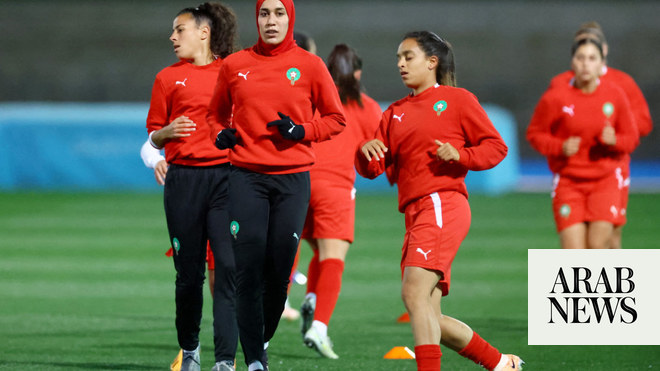
It is perhaps the biggest testament to the quality of the performance of the French referee Stéphanie Frappart and her assistants, Neuza Back of Brazil and Mexico’s Karen Díaz, that the coverage of such a historic men’s World Cup moment was muted to brief mentions.
In taking charge for Germany’s showdown with Costa Rica in the final round of games in Group E, Frappart became the first woman to officiate in a men’s World Cup and it felt decidedly normal.
Frappart is used to making history: she was the first woman to referee in men’s Ligue 2, then Ligue 1 in France and the first woman to referee in the Champions League and Uefa Super Cup.
As a result, she is also used to the noise that comes with it. Amid the overwhelmingly positive response to the appointment of Frappart and her assistants, with many finding it an antidote to a tournament mired in controversy, were the same tired refrains: “The way the woman referee runs is hilarious. I can’t watch the game without cringing,” tweeted one viewer. “I’m all in favour of having a female referee. In fact I think there should be more!” added another with a winking face and fire emojis. “I’m in love! I mean, she’s a great referee!” said another.
Except these were exceptions, with more trending time dedicated to the performance of Victor Gomes, the referee in the other match between Spain and Japan as the teams thrillingly pinballed up and down the table.
In many respects the presence of Frappart mattered so much more than the performance. There has been much, very justified, criticism of the decision to host the World Cup in a country that criminalises same-sex relationships and where LGBTQ+ people have fewer rights, where women’s rights are hugely restricted, and in stadiums built on the bodies of migrant workers.
A key narrative of this tournament has been of suppression of support for even the most basic of human rights and any shows of solidarity with those affected. From the OneLove armband debacle to the initial removal of all rainbow flag-related clothing by stadium security, the attempt to depoliticise the tournament has been fierce.
Fifa’s decision, then, to appoint a team of referees made up of only women to take charge of Germany v Costa Rica bucked the trend of a tournament bowing to the pressure of its hosts.
In a country where Qatari women are forced to obtain permission from a male guardian to marry, work, travel abroad, study and more, three women warmed up in Al Bayt Stadium ready to make history in the middle of the action in a country that would probably not allow them to do what they do were they Qatari.
There have been female journalists and broadcasters in the press boxes and studios during this tournament, but they will only be seen on screens in the countries of those broadcasters, in countries where having a woman on screen is increasingly normal (if not widely appreciated still). But those women will not be on the screens of host broadcasters in countries that do not believe they should be.
Having Frappart standing in the middle of the pitch of the world’s biggest sporting tournament put a woman unavoidably centre stage. It put a woman into every room of every person watching. It told viewers that women have a place in football, that they have authority and they can be athletic. Of course, there will be attempts to not show the referee and her assistants in their short-sleeved shirts and shorts, as Iran’s state broadcaster has done for a number of years, but it is far harder to cut away from the referee than from female fans in the crowd.












